
When Miriam Dabrowa first set foot in China during the summer of 2008, she was instantly captivated. The colors, the energy and the sense of possibility stayed with her long after the Polish native returned home. Five years later, in the winter of 2013, she came back – this time as a student at Tsinghua University – planning to stay for just one semester. That semester stretched into more than a decade, marking the beginning of a journey that would take her from Beijing's classrooms to Shanghai's fast-paced marketing world, and eventually to founding her own platform for entrepreneurs.

Miriam Dabrowa came to China for a semester, stayed a decade and founded Digital Hotpot to empower foreign entrepreneurs with tools to thrive in China's fast-paced market.
Q: Before we talk about your company, would you please introduce yourself?
My name is Miriam Dabrowa, and I first arrived in China in the winter of 2013, just before the Chinese New Year of the Snake. But it wasn't my first encounter with the country – I had visited back in 2008, during the summer, and immediately fell in love.
For the next few years, I focused on my studies while searching for ways to return. In 2013, I finally had the opportunity through a student exchange program at Tsinghua University. The official plan was to stay one semester, but that semester stretched into more than a decade.
After two amazing years in Beijing, I moved to Shanghai and began my career in marketing. At first, I worked with Chinese brands seeking to expand overseas, but soon shifted focus to helping international brands enter and grow in the Chinese digital space.
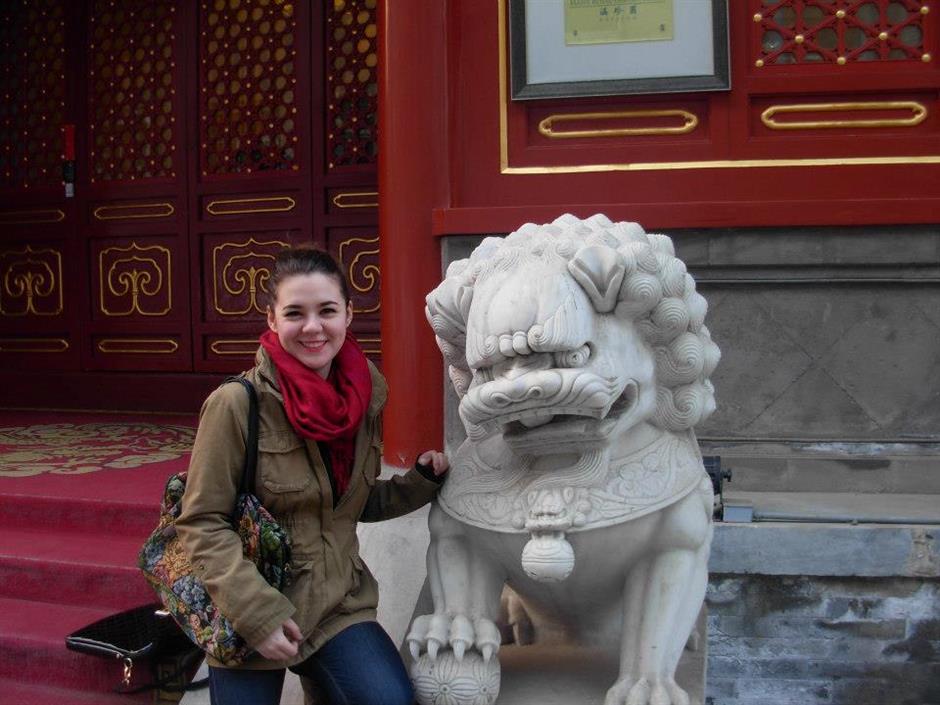
Miriam arrived in Beijing a decade ago.
Q: Why, after living in Shanghai for a few years, did you decide to strike out on your own to build your own company?
To be honest, I never imagined myself as an entrepreneur. But looking back, I think the "entrepreneur bug" bit me soon after arriving in Shanghai. Compared to Beijing, I suddenly saw so many foreigners running their own businesses. I hadn't realized that was possible – or I assumed it was extremely difficult (spoiler: It's still not easy!).
Weekend markets inspired me the most. I saw local brands selling products they had poured love into – candles, jewelry, handmade pouches – and I wanted to be part of that. Eventually, my own idea came: "Virgo Diaries," a line of undated weekly planners. Marketing them was fun, and it was the first time I experimented with WeChat, publishing my very first articles.
Still, I wasn't ready to fully commit until a few years later. Leaving my role as head of China strategy at a leading agency was a tough call – I loved the work and my team – but I knew my concept deserved full focus. That's how Digital Hotpot was born: an educational platform supporting foreign entrepreneurs in China through courses, webinars and one-on-one consultations.
The goal wasn't to create another agency – Shanghai already has plenty of great ones – but to empower business owners and marketers with the skills to succeed independently. Not everyone wants or can afford to work with an agency. I saw a big gap for accessible, practical solutions to demystify marketing in China for foreign entrepreneurs.
I launched Digital Hotpot at the end of last year, and now I honestly wonder why I didn't do it sooner!
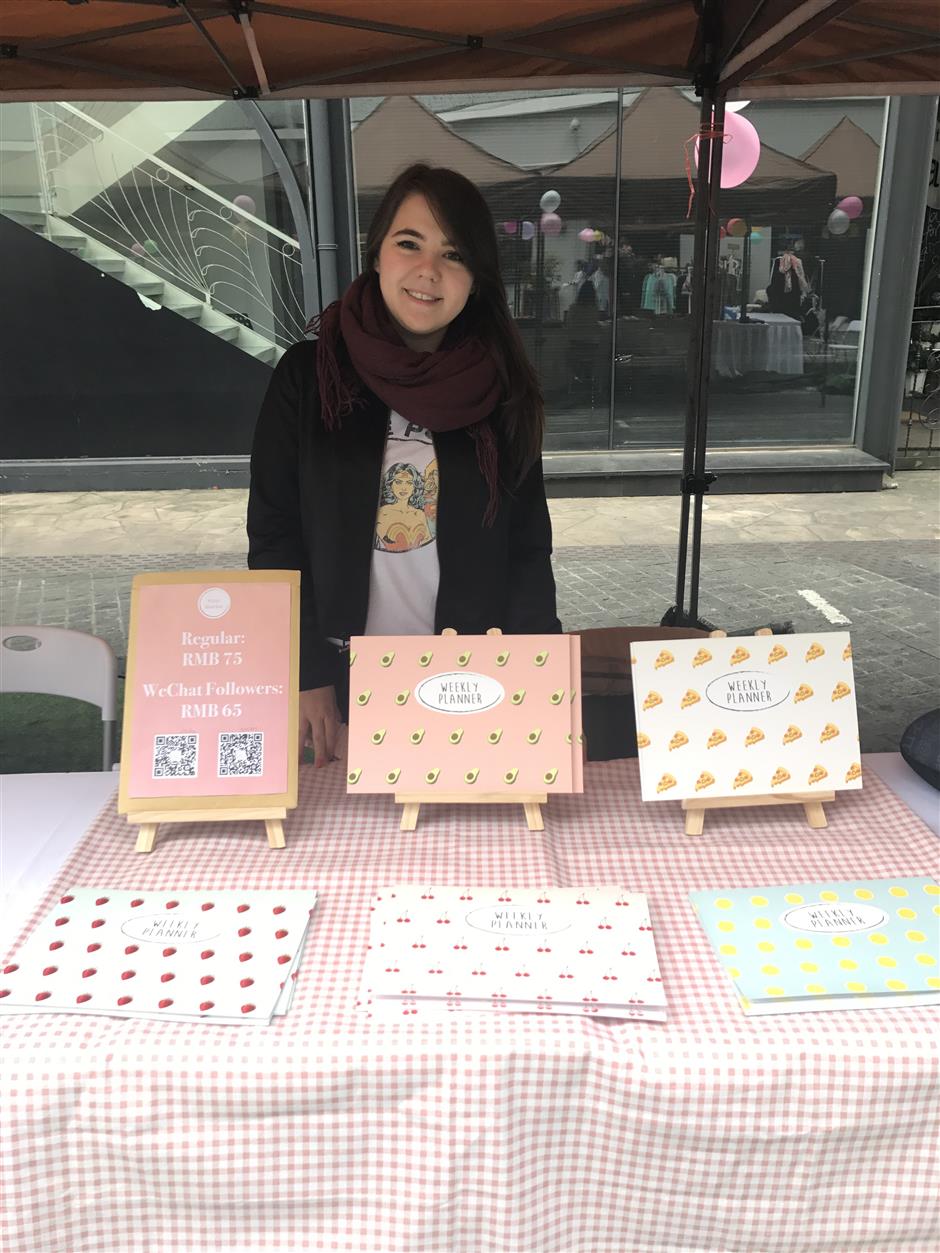
Weekend markets inspired Miriam a lot after arriving in Shanghai. Her own idea came with "Virgo Diaries," a line of undated weekly planners.
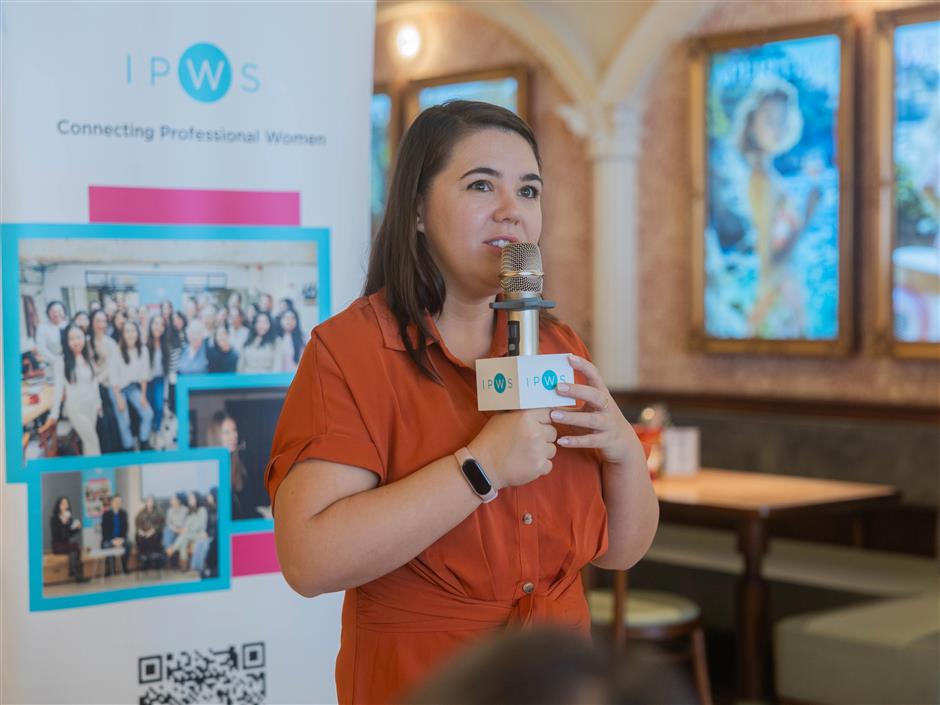
Miriam shared her story at breakfast conversations with IPWS.
Q: What makes Shanghai's business environment so remarkable?
Shanghai is an incredible testing ground for new ideas. The pace is fast, the market is large, and consumers are endlessly curious. People here love being early adopters – whether it's coriander coffee, a new fitness craze or an innovative lifestyle product. And they don't just try new things; they share them on platforms like Xiaohongshu (Rednote) and WeChat Moments, amplifying their reach almost instantly.
Of course, competition is fierce, but that's what keeps things exciting. If your idea solves a problem or simply brings joy, and you can get visibility early on, your chances of success are strong.

Miriam launched a digital e-book "WeChat from A to Z: How to Register and Manage Official Accounts" which is a great gateway for foreign entrepreneurs in China starting on WeChat.
Q: What were you trying to bring to the local community?
My mission is to make marketing more accessible to foreign entrepreneurs and small brands. For solo founders especially, marketing often feels overwhelming. But without visibility, even the best product struggles to succeed.
I focus on helping people understand where to put their energy – whether it's making shopping easier for customers, creating a smart content plan, or learning how to use platforms like WeChat, WeChat Channels and Xiaohongshu effectively. You don't need to post every day, but you do need a strategy.
Five years ago, I also founded the WeChat Girls community – a group for women working or simply interested in marketing. Today, it has more than 300 members. We just celebrated our fifth anniversary with a dinner and networking event, which was a reminder of how important supportive communities can be.
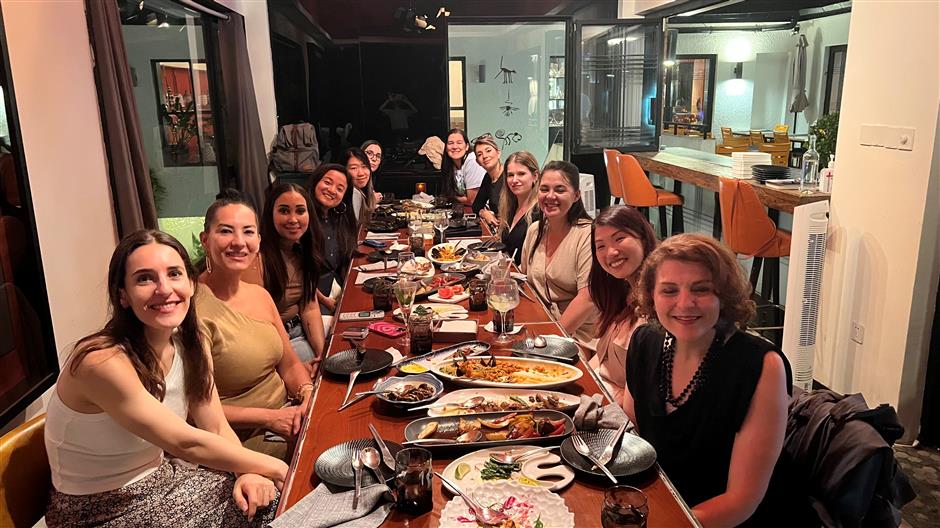
WeChat Girls, a WeChat group community dedicated to women in marketing, business owners and all digital enthusiasts, celebrated five years this summer.
Q: What are the biggest challenges setting up a business here? How do you stay motivated?
Administrative and language barriers remain some of the toughest hurdles for foreign entrepreneurs. For example, even registering a WeChat official account can be complicated without a Chinese ID, even if you already have a local company.
That said, Shanghai's entrepreneurial community is incredibly supportive. If you ask for advice in the right groups, chances are someone has faced the same problem and can point you toward a solution. That sense of shared resilience and possibility keeps me motivated – because you always feel like things will work out in the end.
Q: What was the moment made you most proud?
I feel proud every time my clients and students publish their first WeChat article. I know how much effort and courage it takes, and seeing their ideas come to life is incredibly rewarding.
If I can make a difference in their life by helping them make their business more profitable, I'm satisfied. Marketing doesn't always have the best reputation, but moments like these remind me why it matters.
On a personal level, one moment that stood out was when I returned to Beijing recently to give my first workshops. Standing there as a speaker, I couldn't help but think back to my younger self arriving as a student. If only she knew where this journey would lead – she probably wouldn't believe it.
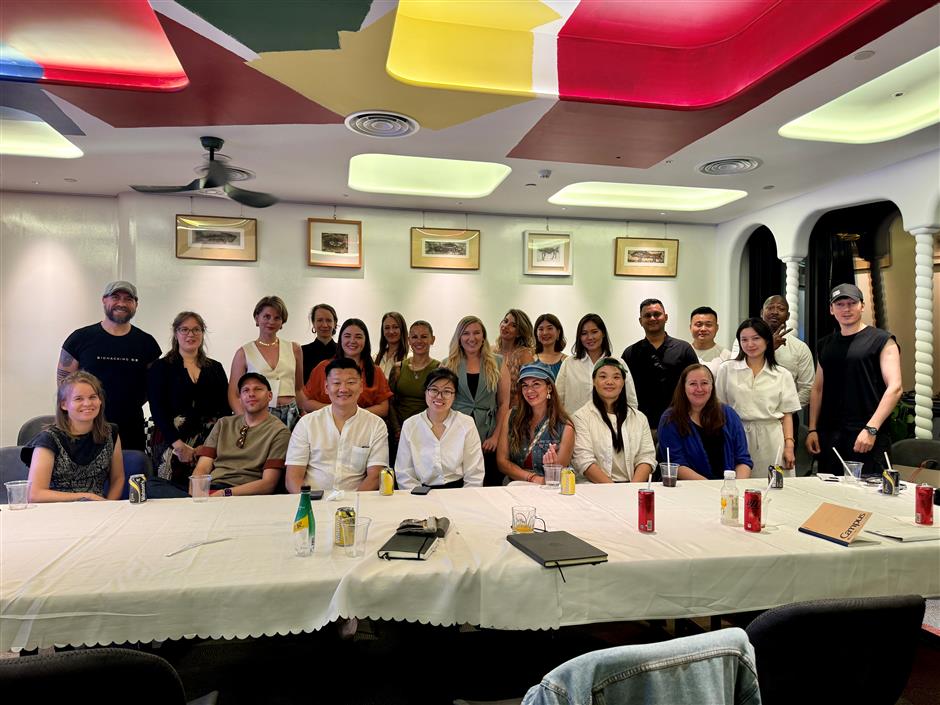
One moment that stood out was when Miriam returned to Beijing recently to give her first workshops.
Q: What are you working on?
Right now, I'm developing more advanced resources for business owners who are already active in China and looking to scale. Earlier this year, I released an e-book on WeChat official account registration to help everyone get started. Now, I'm focusing on supporting intermediate and advanced entrepreneurs with deeper strategies.
At the same time, I'm building an international website to support overseas companies that want to better understand Chinese social media. Over the past years, I've worked closely with many overseas B2B companies, helping them communicate their value to Chinese clients, partners and industry stakeholders. This corporate side of my work has been growing steadily, and I'm excited to expand it further.
Q: Who is a female-role model who inspires you?
I draw a lot of inspiration from biographies of remarkable women in history – women who pushed through even when circumstances were against them. If they could do it, so can we.
But I also believe inspiration doesn't always have to come from famous figures. Sometimes, it's the women around us – friends, peers, colleagues – who are doing brave things in their own way.
Recently, I even had a small realization of my own. Before one of my talks, I felt nervous and asked myself, "Who am I to give advice?" But then I thought – if my story as an ordinary woman starting a business can inspire someone else to take their first step, then it's worth sharing.
Q: Do you have any advice for women entrepreneurs?
Women often have amazing ideas, but we sometimes overthink or strive for perfection before taking action. My advice is simple: Done is better than perfect. Start small, learn as you go, and allow yourself to make mistakes.
Taking that first step can feel uncomfortable, but it gets easier over time. Surround yourself with a supportive community – whether online or offline – because even a small circle of like-minded women can make all the difference in staying motivated and moving forward.

